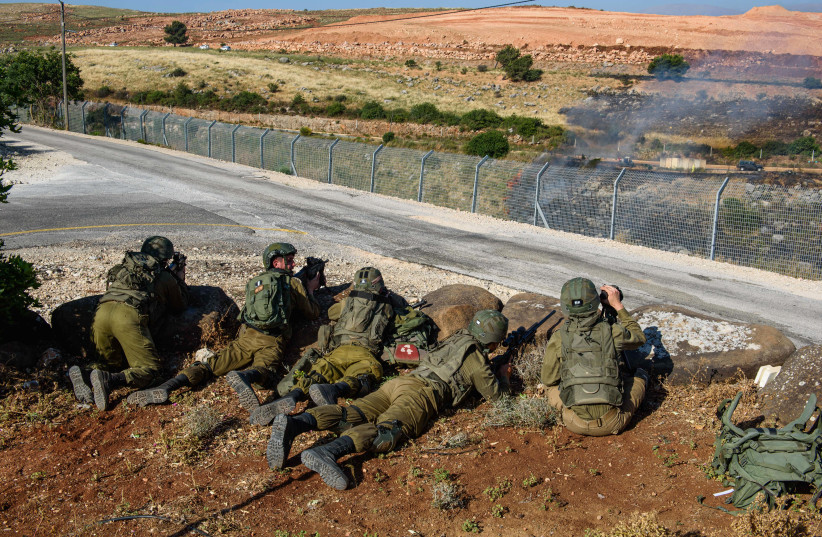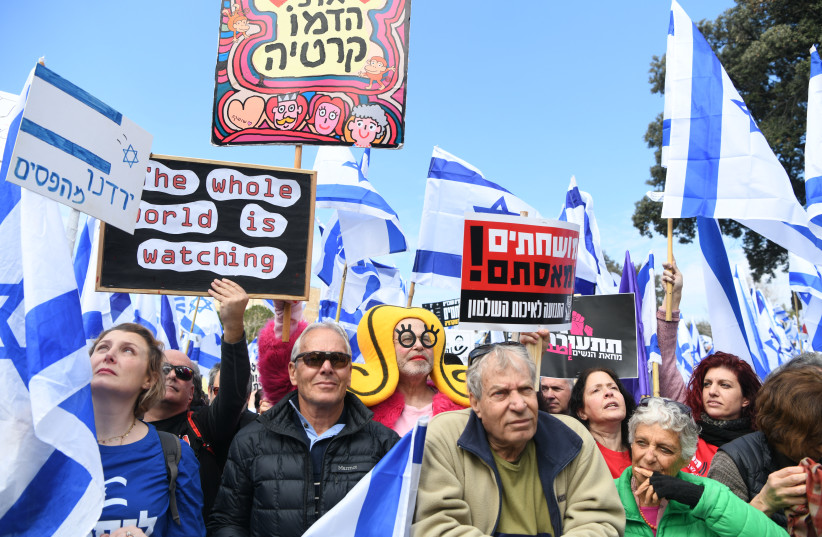As Israel celebrates 75 years of independence, my mind takes me back to a particular event in 1998, when we commemorated 50 years of the modern miracle of the State of Israel.
A few days before the main celebrations, a controversy erupted surrounding one of the artistic elements. As part of the program, a dance troupe would be performing to the famous song from the Haggadah “Who Knows One?”. The choreography called for the dancers to remove some of their outer clothing as the song progressed.
When the program became public, the religious parties expressed their firm opposition to the planned routine, resulting in a tense debate between all the involved parties. Eventually, that dance element was pulled from the program, but the bad feelings remained.
At a time when the country was meant to be celebrating, people had been divided by a dance. While most have likely long forgotten this unfortunate episode, in many ways it is a reflection of the debates surrounding our national identity that remains even 25 years later.
While the first several decades of Israel’s modern independence were defined by struggles to preserve our very existence and ensure our continued growth, our contemporary challenges focus far more on who we are as a nation and a people. While the security fears remain, the question of our physical survival is rarely one that needs to be asked. We can proudly boast economic vitality alongside the world’s leading marketplaces, which allows us to focus on those questions of national identity.

It is therefore that much sadder to think that despite these remarkable accomplishments, we have failed to unite when it comes to the ideological vision of our nation and how best to maintain a country that is both proudly Jewish and democratic.
The disaster at Gush Katif
IN THE SUMMER of 2005, my family and I were on shlichut (working as emissaries) in Sweden. Separated by distance from our homeland, we would spend hours transfixed to the computer screen watching the expulsion of the communities of Gush Katif.
Those images pained us to the core, but we were no less pained by the deep divide it created in our nation. As if a hole was being bored into my heart, I watched as this country that I loved with all of my being, and which I proudly represented, was being torn apart from within.
Within that bitter context, I, as the “representative of Israel” would go out into the communities of Sweden and be asked to defend and promote my country. I knew that I had to protect the interests of Israel and explain defiantly that we would get past this crisis – as we had during other times of division in our history.
I urged my audiences to find the points of optimism amid the disengagement, like the moments when the evacuating forces engaged in tearful embraces with those being forced from their homes. Or the fact that even in those most challenging times, the people of Gush Katif painfully accepted their fate rather than resorting to violence.
Now, in 2023, our nation is once again divided, with the division concerning questions of authority and limits of power between the branches of our government. For months, we have watched a nation in different stages of protest, sometimes escalating to violence bordering on all-out chaos.
Once again, I find myself speaking with friends in the Diaspora struggling to explain the “Israeli situation” while being forced to admit to myself that I truly have little idea what the future might hold. And as in years past, I compel myself to find those points of light in an increasingly tense time.
In these moments when it might seem like things are only getting worse, I look back 120 years, when Rabbi Yitzhak Ya’acov Reines, founder of the World Mizrachi movement, joined the modern Zionist cause. That partnership, between the worlds of religious devotion and the modern ideals of Theodor Herzl, opened a new era of critical collaborations. Certainly, that initial partnership didn’t take place without its fair share of opposition, but over time it gained more and more adherents.
The “ideology of partnership” gained further traction over the decades, most notably with the approach of Rabbi Avraham Kook, who taught that religious passion can be directly reflected through Zionist passion. It was that thought process that served as the engine for contemporary Religious Zionism – uniting the ancient and the modern, religion and state.
That adherence to one ideal or the other in no way means that you are either less of a religious Jew or less of a committed Zionist. Religious Zionism grew to become a force within all elements of modern Israeli society: military, culture, finance, politics and more.
No less important has been our ideology of partnership while extending bridges with Diaspora Jewry. In previous decades, the Religious Zionist movement was the first to send emissaries into the former Soviet Union; later on, we were on the ground in Ethiopia. Both efforts eventually resulted in the mass aliyah of these communities.
The role of the Religious Zionist movement
BASED ON the success of the Religious Zionist movement in collaborating between once-opposing worlds, I firmly believe we have a pivotal role to play in addressing this latest crisis within our society.
It is our obligation to stand up for the values that will protect the strength of our nation, but always strive to find the common ground that can unite our people and to work tirelessly to find the areas for compromise. Partnership. Most importantly, we must help create a framework that sets clear guidelines to limit conflict or, God forbid, violence.
Critically, we cannot afford to make the tragic mistakes of the past whereby one camp forces the other to accept one ideology while ignoring the rightful pain of the other.

It is both a historic challenge and an opportunity to compel ourselves to find an avenue for dialogue and respect and internalize the reality that both sides truly want what is best for this nation, even if they each have their own paths to get there. Only by accepting that truth will we be able to achieve the compromise and forward progress we so need.
At the end of the shemona esrei prayer, we beseech God to instill peace in our world. “Oseh shalom bimromav, hu ya’aseh shalom alenu v’al kol Yisrael.” Just before we say the last three words, we take three steps back. The basis for this custom is a remarkable lesson that demands to be embraced in our times.
If we ever want true peace, we need to make some room for the other side. If we ever want unity, we need to accept that there is a place for others, and that there is enough room for differing worlds and ideologies to exist with one another.
On this remarkable occasion, as we celebrate 75 years in an independent Jewish state of our Jewish people, we must take this lesson to heart and embrace this moment to ensure that our future will be one of unity and continued growth and achievement.
The writer is the head of the Center for Religious Affairs in the Diaspora and senior representative of World Mizrachi in the World Zionist Organization.
